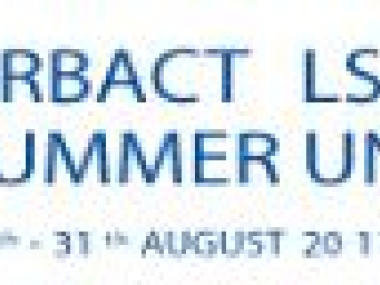URBACT Local Support Groups Summer University: Participants first!
Edited on
09 October 2017Specifically designed for people participating in the URBACT Local Support Groups (ULSG), the first URBACT Summer University which took place in the Jagiellonian University of Krakow, Poland from Monday 29 August to Wednesday 31 August 2011, was a unique learning opportunity for urban practitioners from all over Europe. With a good 'mix of fun and hard work' the University allowed participants to learn new theories, methods and tools for coproducing integrated local urban policy with key stakeholders.

OVERVIEW
- 3 days of work, 300 attendees, 27 countries represented, 5 main themes, 19 virtual ULSG working in parallel, 4 movies, 20 Polish students as linguistic mediators.
- A unique mix of urban practitioners: civil servants, elective representatives, private sector professionals, experts and academics, NGO representatives
- A learning experience: methods and tools for stakeholders' involvement in local urban policy making
- Capacity building in integrated urban development
- Rich transnational exchanges
- The URBACT Cafe: a moment to reflect on improvement to the URBACT Local Support Groups
A unique learning experience
An interactive learning process based on group work problem solving tree and action planning table had to be filled up and used.
problem solving tree and action planning table had to be filled up and used.
Participants played role games, took place on charts, moved around rooms, filled up trees and stuck up post-its. And this in order to achieve the expected result: a convincing Local Action Plan.
This resulted in very dynamic presentations during the last Lab sessions (the Dragon's Den!), with the objective to convince other members of the Lab that one Local Action Plan was the best for the city!
Active involvement of all participants resulted in rich transnational exchanges, but more importantly the University provided participants with useful tools for the future.
Outcomes: more focussed and efficient methods for integrated urban policy
'For participants it is a chance to take a step back on what they do, reflect on what they had been doing, share. It's about people doing their jobs more effectively, people getting better results' says Eddy Adams, URBACT Expert and Lab coordinator for 'Young people' at the ULSG Summer University.
Theoretical and practical input on co-creation of integrated urban policy
Methods and tools proposed during the University were all geared towards involvement of residents and stakeholders in urban policy, focussing on four main stages: identification and involvement of stakeholders:
- Stakeholders analysis
- Methods to identify and reach an agreement on main problems: From Problems to Strategy
- Tools to turn strategy into action: Action planning
- Methods to build a convincing and efficient Local Action Plan.
The other main focus was set on the cooperation between various organisations and administrative levels to go beyond sectoral urban policies and produce integrated urban development.
URBACT TALKS Talks remembered theories of residents' involvement and multi-layered urban policy making.
- Elena SARACENO, Policy advisor of the European Network for Rural Development and FARNET, encouraged participants to re-think the way they conceive the city and act she raised questions such as: What is left from the old vision of the city? How can we adapt and renew it?
- Ivan Tosics, managing director of the Metropolitan Research Institute of Budapest, used a role game to represent the variety of obstacle multilayered involvement of stakeholders represents,. He played the roles of the mayor, the head of environment, business development and social policy, such as the ministry representatives who had to agree on an ambitious regeneration project for a city.
- Robert ARNKIL, Lead Expert of My Generation, reminded that to create the right conditions for urban planning to move away from target group working towards co-creation, one had to transform the ways stakeholders are engaged. He underlined that to allow everyone to give an input, one should help people to articulate their needs by all sort of means such as 'dance, music, theatre' etc…and the Summer University participants tested it!
Highly valued transnational exchanges
<img style="padding-right: 5px; padding-bottom: 5px; float: left;" data-cke-saved-src="uploads/RTEmagicC_e8fb6c4cb1.jpg.jpg" src="uploads/RTEmagicC_e8fb6c4cb1.jpg.jpg" height="207" width="300" alt=" />
Participants to the ULSG University were urban practitioners who do not often have the possibility to attend such meetings. By involving in the Summer University all of them had chosen to dedicate three days to exchanging ideas with people coming from other parts of Europe.
'I think it is very stimulating because they are people from various background so it is good to see how different people would see the same problem' says Pietro de Mattheis from the European Commission, DG Regio.
Indeed, most of them underlined how much they learnt from exchanging with others on their practices.
'To work with others was THE thing, especially to see different experiences. I would like to get more of that!'
'The transnational dynamic was stimulating and provided complex discussions'.
'I can now relate my knowledge to the ones elsewhere in EU.'
Improved practices of stakeholders' involvement
The most important outcome of the University is that participants will be able to apply what they have learnt in their own cities. You can read some of their comments below.
'I do quite a lot of things we train here already but not as focussed, step by step' says Juliana Pantzer from the ULSG of Leipzig 'I do it more by intuition, so now it is good to see where I have some lacks or some missing parts'. 'It made me realise that maybe there are new ways that we can work, maybe we can apply different methods' adds up Marie Wright from Glasgow.
'What I've learned will definitely help me in my ULSG work at home.'
An inspiring experience for the future developments of urban policy in Europe.Watch the lively videos of the event!
Read more:
- URBACT Local Support Groups - URBACT website
- ULSG Summer University Videos - URBACT website
- ULSG Summer University Photos - Picassa website
- Tools and presentations - URBACT Wiki
Submitted by admin on
